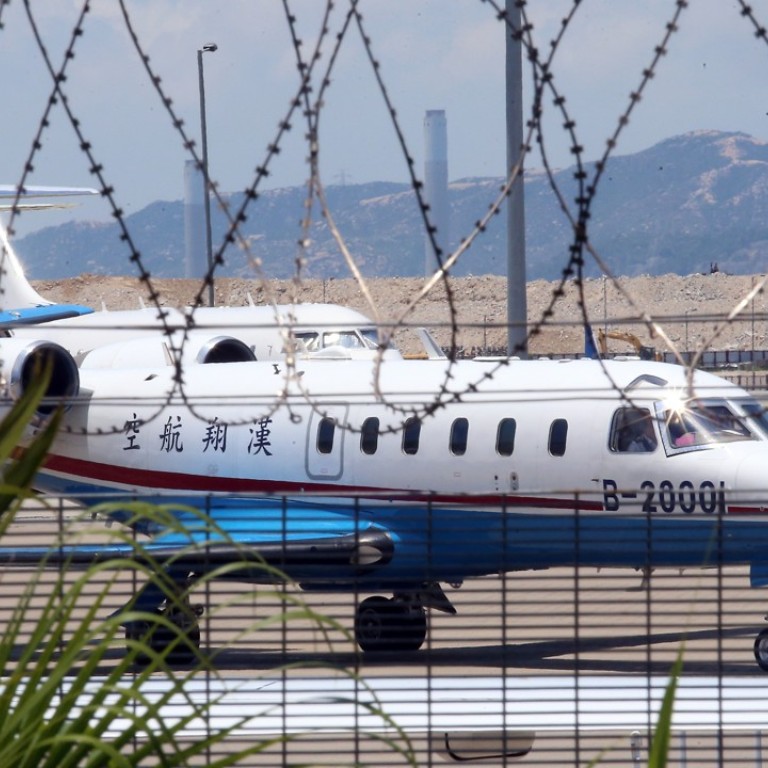Advertisement
Advertisement

Hong Kong airport needs to step up its game on business aviation
I was astonished to read about tycoon Pollyanna Chu’s private jet failing to land in Hong Kong recently. It is alarming to see such poor aerial connectivity in one of the world’s easiest places to do business.
The wealthier class or multinational companies usually use private jets or business jets based at the Hong Kong Business Aviation Centre, a fixed-base operator, in the interest of time and convenience. According to a study last year by researchers from the Chinese University of Hong Kong, most of the top 100 Hong Kong-listed companies use business aviation, and multinational corporations tend to set up their regional headquarters in places with good aerial connectivity.
Emergency medical flights transporting an injured Andy Lau Tak-wah earlier this year and the Manilla hostages in 2010 were also handled using this type of aviation.
Private jets and performances attract gamblers back to Macau
In 2016, a new slot booking system by the Civil Aviation Department sparked an industry outcry. According to a Post report in March 2016, “industry figures estimated at least 2,000 slots went unused last year at a cost of HK$100 million”.
Operation-wise, runway slots for arrival or departure can be booked only 14 days before the operation date but the tentatively approved slot would not be confirmed and granted until a time very close to the actual landing. Imagine how would one react if such conditions were applied to a restaurant booking.
With the integration of the Greater Bay Area in sight, our neighbouring cities are stepping up in improving connectivity. Guangzhou has just opened its new airport terminal, and Macau and Zhuhai already have their own fixed-base operators. Hong Kong cannot afford to be complacent.
Kim Law, Tung Chung

Post
